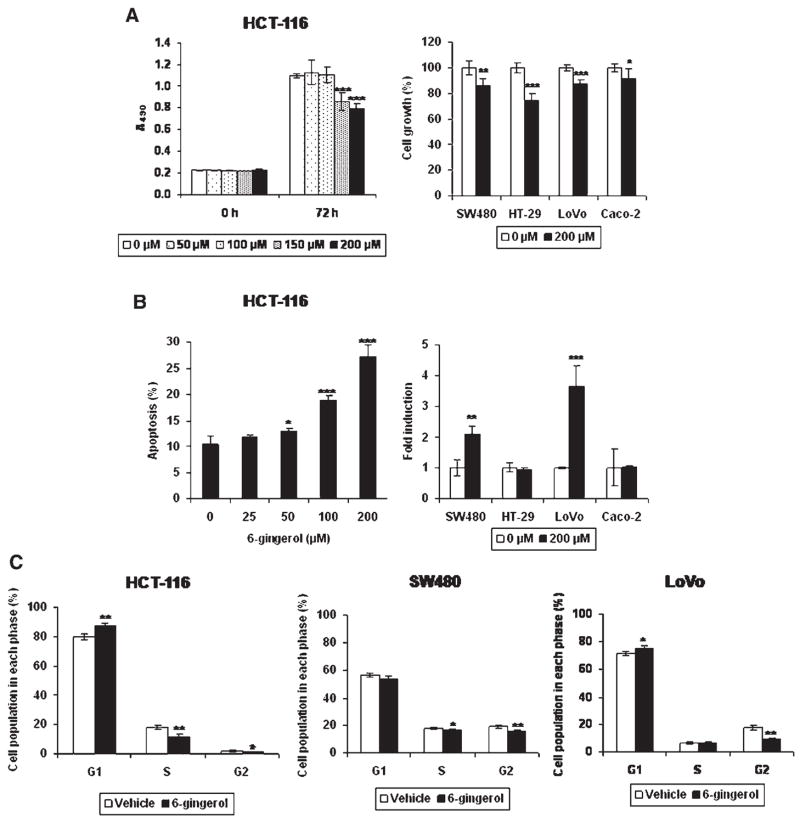Figure 1.
6-Gingerol suppresses cell proliferation, induces apoptosis, and arrests at G1 cell cycle in human colorectal cancer cells. (A) Human colorectal cancer cells were treated with indicated concentration of 6-gingerol for 72 h. Cell growth was measured using CellTiter96 Aqueous One Solution Cell Proliferation Assay. Values are expressed as mean ± SD of four replicates. (Left panel) HCT-116 cells were treated with the indicated concentration of 6-gingerol and cell growth rate was determined. (Right panel) Four different human colorectal cancer cells were treated with 6-gingerol and measured cell growth. The data represent % of reduction compared to vehicle treatment. (B) Human colorectal cancer cells were treated with 200 μM of 6-gingerol for 72 h. The cells were stained with Annexin V-FITC and propidium iodide (BD Biosciences). Apoptosis was quantified by flow cytometry as described in Materials and Methods section. Values are expressed as mean ± SD of three replicates. (C) HCT-116, SW480, and LoVo cells were treated with 200 μM of 6-gingerol for 72 h. Cell cycle distribution was analyzed by FACS analysis of propidium iodide-stained cells. Values are expressed as mean ± SD of three replicates. *P<0.05; **P<0.01; ***P<0.001 versus vehicle-treated cells.

